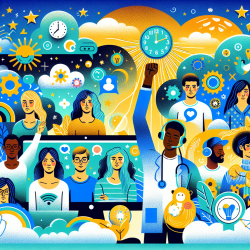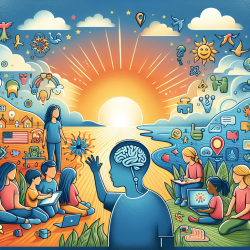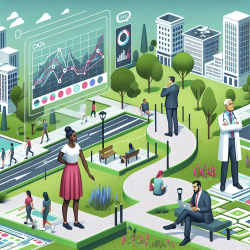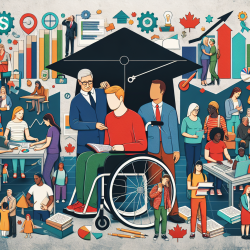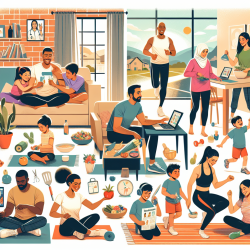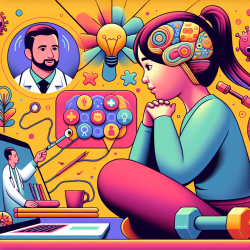Introduction
The aftermath of the Ebola crisis in Liberia presented unique challenges and opportunities for mental health practitioners. The research article "Recovering from the Ebola crisis: ‘Social Reconnection Groups’ in a rural Liberian community" by Morelli et al. (2019) provides a compelling case study on community-based psychosocial interventions. This blog explores how practitioners can enhance their therapeutic practices by implementing the outcomes of this research.
Understanding Social Reconnection Groups
The Social Reconnection Groups (SRGs) were developed as a response to the collective trauma experienced by the community of Mawah, Liberia, during the Ebola outbreak. These groups aimed to provide a safe platform for participants to reflect on their experiences, build trust, and re-establish social support mechanisms. The intervention was grounded in sociotherapy principles, focusing on daily stressors, problem-solving, and mutual emotional support.
Key Outcomes and Lessons for Practitioners
Practitioners can draw several key lessons from the SRGs:
- Flexibility and Cultural Responsiveness: The success of the SRGs was partly due to their adaptability to local customs, such as incorporating Town Hall meetings and communal music. Practitioners should strive to integrate culturally relevant practices into their interventions.
- Building Trust and Safety: Establishing a safe and trusting environment was crucial for participants to share their experiences. Practitioners should prioritize creating a space where clients feel secure and supported.
- Addressing Misconceptions and Providing Accurate Information: The SRGs helped clarify misinformation about Ebola, reducing fear and stigma. Practitioners should focus on providing accurate information to dispel myths and foster understanding.
- Fostering Resilience and Hope: The intervention emphasized the community's strengths and resilience, encouraging a hopeful outlook for the future. Practitioners should highlight clients' strengths and foster a sense of hope and empowerment.
Encouraging Further Research and Implementation
While the SRGs demonstrated significant benefits, further research is needed to understand the long-term impacts of such interventions. Practitioners are encouraged to explore similar community-based approaches in their settings and contribute to the growing body of research on psychosocial interventions in post-crisis contexts.
Conclusion
The Social Reconnection Groups in Liberia offer valuable insights for practitioners seeking to enhance their therapeutic practices. By integrating cultural responsiveness, building trust, providing accurate information, and fostering resilience, practitioners can support communities in their recovery from collective trauma. To read the original research paper, please follow this link: Recovering from the Ebola crisis: ‘Social Reconnection Groups’ in a rural Liberian community.




